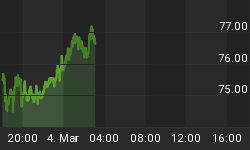When talk turns to what might derail today's debt-driven "recovery," the big names and easy stories get most of the attention: China with its soaring debt, volatile equities and heavy-handed intervention; Japan with its stratospheric debt and science fictiony demographics; Greece, which needs no explanation; the developing countries with their weak currencies and mountain of dollar-denominated debt. And of course America's triple bubble of stocks, bonds and derivatives.
Underfunded pension plans, to the extent they come up at all, tend to be mentioned in passing largely because most of them are 1) too small to matter on their own and 2) too hard to understand for most people to form a strong opinion.
But they deserve a closer look. In the US there are dozens of state and local pension plans that in the aggregate are underfunded by several trillion dollars (meaning they've promised this much to beneficiaries but don't have it). When one plan blows up it will impact lots of others, so the aggregate number is a pretty good indicator of the real risk.
The generally-accepted poster child for pension mismanagement is Chicago. As the Wharton business school recently noted:
Chicago's unfunded liabilities are 10 times its revenues. Just assume that they're going to have to pay 5% of that [number annually]. That means you're looking at 50% of their cash that will have go to pensions.
For a more detailed account of the mess that is Chicago see Emanuel fiddles while Chicago burns by enraged Illinois resident Mike Shedlock.
But, you might reasonably say, pension funds have big investment portfolios so they must be making fortunes in today's bull markets. You'd be right in some cases. But apparently it's still not enough to offset rising liabilities as baby boomer teachers, cops and fire fighters retire. And now, as financial markets peak and start to roll over, it's getting harder to make any money at all. Consider the plight of huge California pension plan CalPERS:
CalPERS misses its target return by a wide margin
The California Public Employees' Retirement System said it missed its return target by a wide margin, hurt by a sluggish global economy and an under-performing private equity portfolio.The nation's largest public pension fund said its investments returned just 2.4% for its fiscal year, ended June 30, far below its 7.5% investment target.
In a conference call with reporters Monday, CalPERS' chief investment officer, Ted Eliopoulos, said the main culprit was a sluggish world economy that held down returns on its giant stock portfolio, which makes up 54% of the $301-billion fund.
The stock portfolio's return was only 1%, underperforming the 1.3% returns at its benchmark portfolio. Eliopoulos noted that the fund has done better than the 7.5% target over the previous three- and five-year periods.
And this is during a year when stocks and bonds did okay. What happens when -- after one of the longest bull markets ever -- the inevitable bear market occurs? A diversified stock portfolio will fall by 20% (the definition of a bear market), real estate will tank as it always does in hard financial times, and bonds, which would normally outperform in such an environment, might only be stable since they're already yielding next to nothing. The net result: A loss of 10% - 15% at a time when the fund needs at least +8% just to keep up with soaring obligations. The funding gap becomes a chasm, leading to calls for benefit cuts (which lower the incomes of current and prospective retirees and send them en masse to the polls to vote out the ruling party), big tax increases to rebuild pension portfolios (sending taxpayers not covered by these plans to the polls to vote out the incumbents), or massive spending cuts to free up money to rebuild pensions (which dumps the local economy into a deep recession, sending newly-poor residents to the polls...you get the picture).
If this sounds a little Greece-like, that's because states and localities are in a very similar bind: they're small economic units that have accumulated unpayable debts. Lacking the ability to print and/or devalue their own currency, they have no choice but to (at some point) live within their means. But this inflicts extraordinary pain on a populace that isn't used to suffering and sees no point in starting.
The ensuing crisis will be "solved" in one of two ways:
-
A default by, let's say Chicago, which sends its municipal bonds down to pennies on the dollar and, much more important, panics everyone who owns munis, tanking the whole sector. States and localities around the country find themselves unable to borrow, and they start defaulting on their outstanding bonds and/or laying off tens of thousands of workers, turning a narrow little muni crisis into a full-blown recession. This in turn lowers the returns generated by stocks and real estate, further widening the pension gap.
-
Washington (DC) steps in and bails Chicago out before it can default. But -- same as if the eurozone forgave Greece's debt -- all the other badly run pension plans decide they're Italy and demand the same sweet deal. The cost spirals into the trillions, the financial markets realize that government debt and money creation are now on a one-way train to infinity, and everyone freaks out.
Pretty impressive black swan, no?















